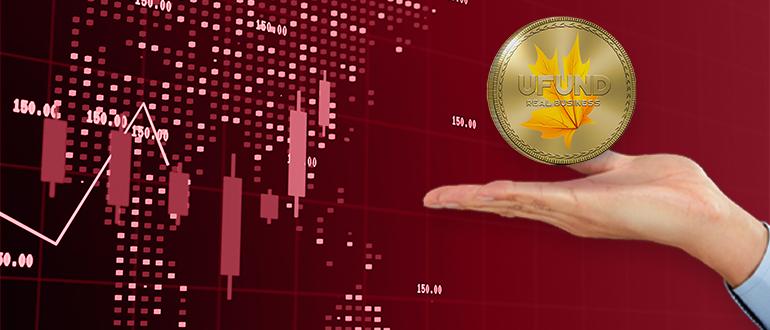
Tokenized Stock Exchange: The Next Step in Digital Trading
In the ever-evolving finance landscape, the rise of tokenized stocks has emerged as a groundbreaking development, blending traditional equity investments with the innovation of blockchain technology. As investors increasingly explore digital asset possibilities, the tokenized stock exchange concept has garnered significant attention and interest. Let’s delve deeper into this revolutionary facet of the financial world.
Tokenized Stock Exchange: What Is It?
Tokenized stocks represent a fusion between traditional equity shares and the functionality of cryptocurrencies. A tokenized stock mirrors a share of ownership in a publicly traded company, similar to stocks traded on established exchanges like Nasdaq or S&P 500. However, the key distinction lies in their form—tokenized stocks are digital tokens residing on a blockchain network.
The process involves a custodian and an investment institution collaborating to create tokenized stocks. The institution purchases the underlying stock and deposits it with the custodian. Subsequently, tokens are issued on a blockchain, each pegged to the value of the underlying shares. These tokens can then be listed on cryptocurrency exchanges, enabling trading akin to any other cryptocurrency. Holders of tokenized stocks enjoy exposure to the underlying stock's performance, including dividend payouts, yet they do not possess direct ownership of the shares but rather a derivative backed by actual shares.
How Does Tokenized Stock Trading Work?
Trading tokenized stocks differ from conventional stock trading. Here's a simplified breakdown of the process:
- Select a Suitable Exchange: Find an exchange that supports the tokenized stock you intend to trade, which could be a centralized or decentralized exchange.
- Account Creation: Register on the chosen exchange, typically requiring personal information and identity verification.
- Funding Your Account: Deposit funds in cryptocurrencies or fiat currencies compatible with the token you wish to trade.
- Purchase of Stock Tokens: Consider your risk tolerance and investment strategy by buying the desired stock token.
Tokenized Stocks vs. Stocks
Tokenized and traditional stocks offer distinct advantages and disadvantages, catering to different investor preferences and needs. Traditional stocks, acquired through a stock exchange, provide direct ownership, voting rights, and dividends, enabling active participation in a company's growth. However, they are bound by exchange hours extensive regulations and may involve intermediary costs.
On the other hand, tokenized stocks, traded on crypto exchanges globally, present a borderless, accessible, and efficient alternative. They offer 24/7 trading, reduced intermediaries, and flexibility in fractional investments. Yet, tokenized stocks do not confer shareholder rights like voting or dividends, limiting involvement in company decisions. Moreover, moving tokenized stocks between exchanges is challenging, and their prices can diverge from traditional stock values.
Below is a comparison table highlighting the key aspects of both:
| Types or Stocks | Traditional Stocks | Tokenized Stocks |
|---|---|---|
| Advantages |
|
|
| Disadvantages |
|
|
Tokenization Market
The burgeoning tokenization market presents groundbreaking investment avenues set to surge remarkably. Forecasts by Markets and Markets project its expansion from USD 2.3 billion (2021) to USD 5.6 billion (2026) across diverse assets. Beyond tokenized stocks and bonds, this trend unveils numerous promising opportunities, shaping a dynamic landscape for investors.
Tokenization of Previously Un-Traded or Undervalued Assets
Tokenization revolutionizes the valuation and protection of previously overlooked assets. Artwork tokenization disrupted the industry, safeguarding creations from theft and elevating limited editions. Predicted to soar from $21.33 billion in 2022 to $82.43 billion in 2026, this market's growth is staggering (The Business Research Company).
Visual arts led this transformation, yet gaming, video, and music content are poised for tokenization. Observing these emerging examples is crucial. Beyond the limelight, tokenization extends to real estate, enabling investors to own fractions and gain rewards like rent or dividends. DigiShares, ArrivedHomes, and RealT pioneer real estate tokenization, a trend set to escalate.
Not limited to prevalent sectors, tokenization's adaptability spans every industry. Diverse assets—be it real estate or transport—are being tokenized. Mercedes-Benz AG's Mobicoin incentivizes eco-driving by rewarding users with tokens redeemable for VIP tickets or fiat currencies, marking a significant shift in the transportation industry's approach.
Pros of Trading Tokenized Stocks
Tokenized stocks offer several advantages over traditional equity trading:
- Increased liquidity due to broader accessibility.
- Faster transaction and clearance times compared to conventional stock trading.
- Ease of obtaining fractional shares.
- Lower fees on certain crypto exchanges.
- Availability for trading 24/7, offering flexibility to investors.
Cons of Trading Tokenized Stocks
However, tokenized stocks also come with their own set of drawbacks:
- Token holders do not possess shareholder rights.
- Additional intermediaries in the trading process can introduce risks.
- Extra KYC requirements may create inconveniences for investors.
Who Can Trade Tokenized Stocks?
In theory, anyone with internet access and funds can trade tokenized stocks. Cryptocurrency's decentralized nature allows global accessibility, making tokenized stocks appealing to individuals lacking access to traditional financial markets.
Tokenized Stock Regulations
Tokenized stocks fall under the same regulations as traditional securities, according to the Securities and Exchange Commission (SEC). These tokens must be registered, and exchanges trading them must comply with SEC regulations. Non-compliance has led to legal actions against tokens and exchanges, emphasizing the importance of adhering to regulatory frameworks.
UFUND: Revolutionizing Investment Opportunities
UFUND represents an innovative approach to democratizing investment opportunities through tokenization. By leveraging blockchain technology, UFUND aims to provide a secure, transparent, and accessible platform for tokenized asset trading. Through UFUND, investors can explore diverse investment options, including tokenized stocks, and benefit from the advantages of this evolving financial landscape.
In conclusion, tokenized stocks represent a transformative phase in digital trading, offering new prospects for investors globally. While these exchanges provide increased accessibility and liquidity, investors must navigate regulatory compliance and understand the nuances and limitations of tokenized stocks. As the financial landscape continues to evolve, tokenized stocks are poised to play a significant role in shaping the future of investments.

0 Comments